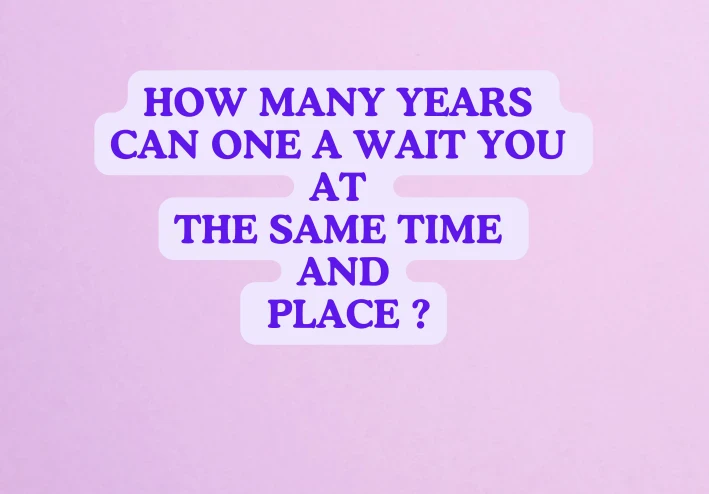
تعلم اللغة الفرنسية للمبتدئين - تعلم المفردات الاساسية
French for beginners
Observations(ملاحظات)
In France, generally it is widely used
MONSIEUR – for a man
MADAME – for a woman
MADEMOISELLE – if the lady is young or unmarried
The titles are used usually to address people if you are not on first-name terms with them. In Writing the titles are as per: M - monsieur, Mme - madame, Mlle - mademoiselle
GREETINGS | ||
HELLOS | ||
GOOD MORNING, GOOD DAY!, GOOD AFTERNOON! - it is used mainly from morning until late afternoon. It is the most common way to greet people, both formally and informally, until about 6pm. It is all the time used when a person it is introduced for the first time |
BONJOUR | 1 |
Bonjour Madame | ||
إلقاء التحية باللغة الفرنسية لمجموعة كبيرة من الناس إذا دخلت غرفة مليئة بالناس، مثل المخبز حيث يوجد صف، فيمكنك حينئذٍ تحية الجميع بقول "bonjour" بشكل عام. | ||
إذا سبق لك أن قلت مرحبًا لشخص ما وقابلته مرة أخرى، فمن الشائع أن تقول "rebonjour": "bonjour again"، إذا كنت تريد... | Rebonjour |
|
GOOD EVENING! Is generally used after 5 p.m OR 6 p.m |
BONSOIR | 2 |
Bonsoir madame | ||
Can be used in between friends. Also, it can be translated as - Hi and it is a form of hello, also used between friends |
SALUT! | 3 |
تُستخدم كلمة "Salut" بين الأقران... هذه مسألة تتعلق بالطبقة الاجتماعية. لكن الطبقة الاجتماعية مهمة جدًا في فرنسا. قد يستخدم شخص من طبقة العمال كلمة "Salut" بسهولة، حتى مع غرباء تمامًا إذا شعر أنهم ينتمون إلى نفس الطبقة الاجتماعية. | ||
Mainly used when talking on the phone |
ALLÔ | 4 |
نستخدم "Allô" فقط لقول مرحبًا باللغة الفرنسية على الهاتف. على الهاتف، تستخدم "Allô" عند الرد على الهاتف، لذا بصوت مرتفع مستفسر: "Allô"؟ | ||
GOODBYES | |
GOODBYE - and is used at any time | AU REVOIR |
GOODBYE, to a good friend | SALUT, CIAO |
GOOD NIGHT or when going to bed | BONNE NUIT |
HAVE A GOOD DAY | BONNE JOURNÉE |
HAVE A GOOD EVENING | BONNE SOIRÉE |
Greetings vocabulary | ||
Hello | Bonjour | 1 |
Hi or Bye | Salut | 2 |
Goodbye | Au Revoir | 3 |
Is everything alright? | Ça va? | 4 |
how are you? ( to group or you don't know well the person) Are you okay? | Comment allez-vous? | 5 |
How are you? ( to a buddy, family member .. ) | Comment vas-tu? | 6 |
Ok , Well or Fine | Bien | 7 |
Very well | Très bien | 8 |
Not too bad | Pas trop mal | 9 |
So so | Comme ci comme ça , couci-couca | 10 |
And you? ( Formal or Plural ) | Et vous? | 11 |
And You? ( Informal ) How about you? | Et toi? | 12 |
What is your name? ( to a group or you don't know well the person) | Comment vous appelez-vous? | 13 |
What's your name? ( to a buddy, family member .. ) | Comment t'appelles-tu? | 14 |
My name is Jean | Je m'appelle Jean | 15 |
Sir or Mr | Monsieur | 16 |
Madama or Mrs | Madama | 17 |
Nice to meet you | Enchante | 18 |
My name is Paul, and you, what's your name? | Je m'appelle Paul, et vous, comment vous appelez-vous? | 19 |
See you again / later ( but another day ) | à bientôt | 20 |
Welcome | Bienvenue | 21 |
Courtesy vocabulary | ||
Excuse me ( to a group or you don't know well the person) | Excusez-moi | 1 |
Excuse me ( to a buddy, family member …) | Excuse-me | 2 |
Pardon | Pardon | 3 |
Thank you | Merci | 4 |
Thank you very much | Merci beaucoup | 5 |
You're welcome | De rien | 6 |
It is very nice of you That's very kind of you | C'est très aimable à vous | 7 |
I'm sorry ( an additional ‘e’ if a girl is speaking ) | Je suis désolé | 8 |
It's nothing | Ce n'est rien | 9 |
You are welcome ( to a group or you don't know well the person) | Je vous en prie | 10 |
You are welcome ( to a buddy, family member …) | Je t'en prie | 11 |
Don't mention it | il n'y a pas de quoi | 12 |
( to a group or you don't know well the person) Please | S'il vous plaît | 13 |
Please ( to a buddy, family member …) | S'il te plaît | 14 |
Thank you so much | Mille mercis | 15 |
Many thanks | Merci bien | 16 |
Name vocabulary | ||
Last name(masculine) | Nom (m) | 1 |
First name(masculine) | Prénom(m) | 2 |
My last name | Mon nom | 3 |
My first name | Mon prénom | 4 |
من الأمور المهمة التي يجب ملاحظتها في هذه الإجابة هو الفرق بين "nom" و"prénom". في بعض المواقف، قد يسألك شخص ما عن اسمك الأخير ("nom" أو "nom de famille") أو اسمك الأول ("prénom"). | ||
Your last name(plural or you don't know) | Votre nom | 5 |
Your first name(plural or you don't know) | Votre prénom | 6 |
Your last name(to a buddy, etc ….) | Ton nom | 7 |
Your first name | Ton prénom | 8 |
How do you spell it? | Comment ça s'écrit? | 9 |
Jean, how do you spell it? | Jean, comment ça s'écrit? | 10 |
Yoy write J E A N (to a buddly, etc…) it's written J E A N | ca s'ecrit J E A N | 11 |
My first name is Paul | Mon prénom est Paul | 12 |
What's your name? ( to a buddly …) | Comment tu t'appelles? | 13 |
Your name is ? ( to a buddy,….) | Tu t'appelles comment? | 14 |
What is your name? (plural or you don't know) | Comment vous appellez-vous? | 15 |
My name is Paul | Je m'appelle Paul | 16 |
To call in French | ||
My name is | Je m'appelle | 1 |
Your name is ( to a buddy, family member …) | Tu t'appelles | 2 |
His name is | il s'appelle | 3 |
Her name is | Elle s'appelle | 4 |
Our name is | Nous nous appelons | 5 |
Your name is ( to some one you don,t know or several people) | Vous vous appelez | 6 |
Their names are (boys) | ils s'appellent | 7 |
Their names are (girls) | Elles s'appellent | 8 |
Observation - ملاحظة Difference between “ils sont” and “ils s'appellent” | ||
إنهم متشابهون في بعض الجوانب ولكن هناك بعض الاختلافات , لدينا فعلين مختلفين هنا . Here is an example: Ils sont Paul. -- They are Paul. هناك مجموعة من الأشخاص من الذكور واسمهم بول. كلاهما متشابهان ولكن بتركيب نحوي مختلف. | ||
To introduce | ||
I introduce myself Let me introduce myself | je me présente | 1 |
You introduce yourself | Tu te présentes | 2 |
He introduces himself | il se présente | 3 |
She introduces herself | Elle se présente | 4 |
We introduce ourselves | Nous nous présentons | 5 |
You introduce yourselves ( to a group or you don't know well the person) Introduce yourself | Vous vous présentez | 6 |
They introduce themselves | ils se présentent | 7 |
They introduce themselves | Elles se présentent | 8 |
Do you want to introduce yourself, please? Would you like to introduce yourself, please? (to a group or you don't know well the person) | Voulez-vous présenter, s'il vous plaît? | 9 |
Yes, of course, well, I introduce myself, my name is Pierre Dupont | Oui, bien sûr,alors, je me présente,je m'appelle Pierre Dupont | 10 |
And, can you introduce your friend? | Et, pouvez-vous présenter votre ami? | 11 |
I introduce Pierre to you, a friend of mine Let me introduce you to Pierre, a friend | Je vous présente Pierre, un ami | 12 |
May I introduce you to Mr. Dupont to you? | Puis je vous présenter Monsieur Dupont? | 13 |
Let me introduce myself | Permettez-moi de me présenter | 14 |
I introduce Pierre to you Let me introduce you to Pierre | Je te présente Pierre | 15 |
Family vocabulary | ||
My | Mon (m, f) | 1 |
Your | Ton (m, f) | 2 |
My | Ma (f) | 3 |
Your | Ta (f) | 4 |
Father | Père (m) | 5 |
Dad | Papa | 6 |
Mother | Mere | 7 |
Mom | Maman | 8 |
Brother | Frère colloquial: Frangin | 9 |
sister | Soeur col: Frangine | 10 |
Grandpa or grandfather | Grand père col: Papi | 11 |
Granny or Grandmother | Grand mère col: Mamie | 12 |
Uncle | Oncle | 13 |
Aunt | Tante | 14 |
Son | Fils | 15 |
Daughter | Fille | 16 |
What's your father's name? | Comment s'appelle ton père? | 17 |
My father's name is Jean | Mon père s'appelle Jean | 18 |
What's your mother's name? | Comment s'appelle ta mère? | 19 |
My mother's name is Paulette | Ma mere s'appelle Paulette | 20 |
Extended family | ||
The father-in-law | Le beau-père (m) | 1 |
The mother-in-law | La belle-mere | 2 |
The brother-in-law | Le beau-frère | 3 |
The sister-in-law | La belle-soeur | 4 |
The cousin | Le cousin | 5 |
The cousin | La cousine | 6 |
The half-brother | Le demi-frère | 7 |
The half-sister | La demi-soeur | 8 |
The nephew | Le neveu | 9 |
The niece | La niece | 10 |
Single | Celibataire | 11 |
Married, married | Marié, mariée | 12 |
The husband | Le mari | 13 |
other word for husband | L'époux | 14 |
The woman but also wife | La femme | 15 |
The wife or spouse | L'épouse | 16 |
The friend (he, she) | L'ami, l'amie | 17 |
Man | Homme | 18 |
Boy | Garcon | 19 |
Daughter | Fille | 20 |
اعتذر مسبقا ان وجد اي خطا وارجو التنويه
شكرا لكل من قراء المقال وكل قارئ في المنصة
اتمنى لكم الفائدة ولكم الافضل

































